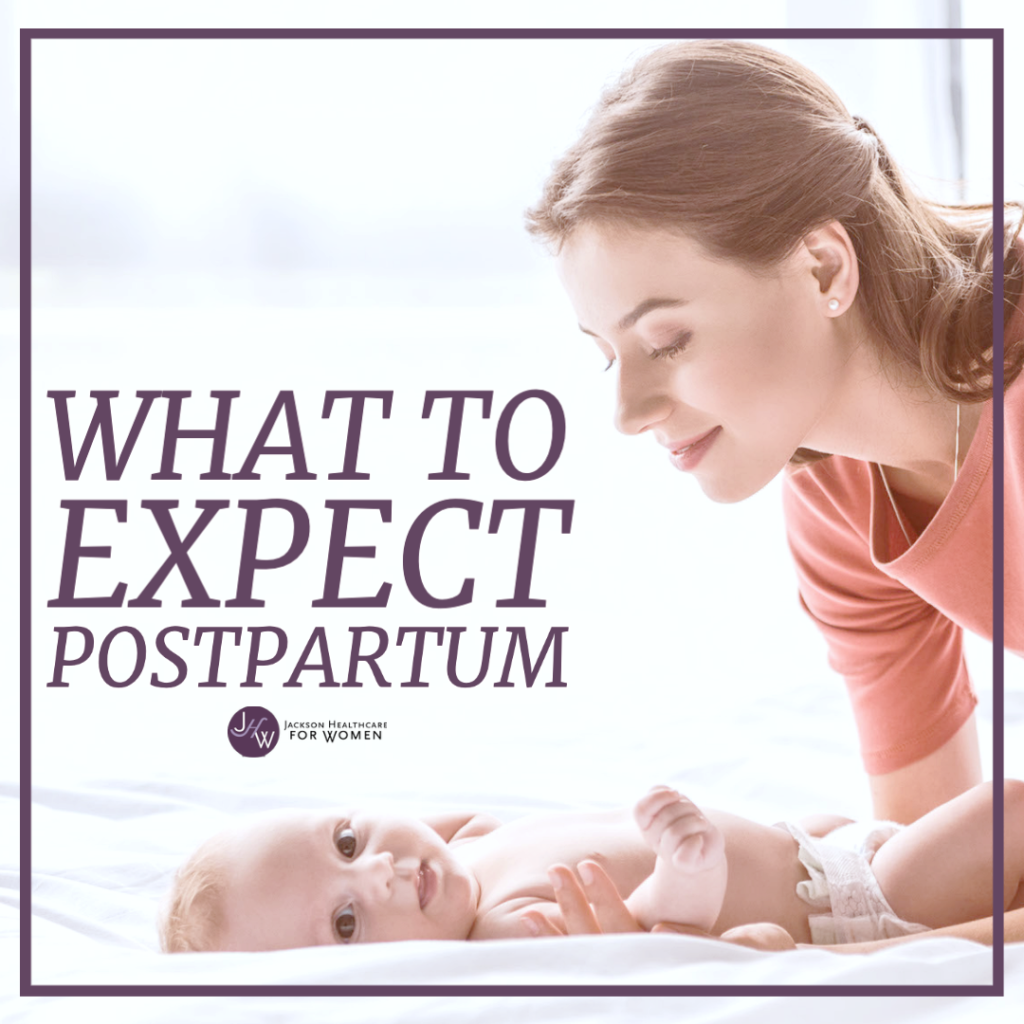Congrats! You made it through pregnancy and have been blessed to deliver a healthy new baby. However, you may be wondering what symptoms you may experience after delivery when you arrive at home. Below, we share what you will need to be aware of and as always, please call the clinic with any questions.
When You Arrive at Home
Rest
During your first two weeks at home, it will be important to get as much rest as possible. This can be a challenge with a newborn who wakes at all hours of the night. Your body has also been through a significant event, which will make you tire easily. Get help and sleep when you can!
Soak
Immediately upon your arrival at home, you are also free to shower, soak in the bath or hot tub, and go up and down stairs. Hot tub soaks can help relieve discomfort and are a great tool in soothing stitches and hemorrhoids. We also recommend using Anusol HC rectal suppositories and Tucks pads.
Constipation and Gas
You may become constipated or have painful gas. This can happen after being in the hospital and not getting much movement, especially if you’ve had a caesarean section. We suggested increasing fluid intake, especially fruit juices and hot liquids like coffee and tea to try and remedy these issues. You can also use 100% unprocessed bran and take a light laxative such as Milk of Magnesia at bedtime.
Breastfeeding and Breast Discomfort
If you are bottle feeding, wear a tight support bra or bind your breasts tightly with a towel, diaper or ace bandage secured with safety pins. Make sure to apply ice packs 3-4 times per day to minimize engorgement. Take aspirin, Advil, Aleve or Tylenol for pain associated with engorgement, which should subside within 48 hours of onset. Benadryl 25-50 milligrams taken by mouth every 4-6 hours may also relieve breast engorgement.
If you are nursing, we still recommend wearing a good support bra and calling the hospital nurse for maternal-infant instructions, if you are having any challenges with lactation or feeding your baby. Call the clinic if you begin to run fever, have breast redness or severe breast pain. These can be signs of an infection. Also, remember to take your vitamins twice per day.
Vaginal Bleeding
We cannot predict how much or how little vaginal bleeding you may experience after delivery but do not be concerned unless the bleeding you experience is heavier than a normal period. It should gradually taper off and your period may be irregular for a little while.
Tubal Ligations and Caesarean Sections
If you’ve decided to have a tubal ligation or your “tubes tied”, keep your incision clean. After five days, if there is tape on your wound, you may remove it. Make sure you have assistance when you take a bath or shower.
Caesarean Sections or “c-sections” may cause you to feel a pulling sensation on one or both sides of your incision. Do not be concerned. Over the counter pain relievers should reduce your discomfort. If they do not, then call the clinic.
After the First Two Weeks
Driving
While you may have the urge to drive, we recommend patients wait at least two weeks before stepping behind the wheel. Stitches may come out and incisions may open if you do not take this time to heal before driving. Minimize being a passenger in a car until one week has passed at home.
The Six Week Checkup
We recommend every new mother schedule a checkup with us at six weeks postpartum. With a new baby in the house, it can become a second thought to care for yourself, so call on the day you get home, so you don’t forget! At this checkup, your doctor may release you to have intercourse and use tampons again.
Jackson Healthcare for Women is Mississippi’s leading provider of health care services for women. With 15 physicians on staff, Jackson Healthcare for Women is one of the largest and most respected women’s healthcare clinics in the area.

